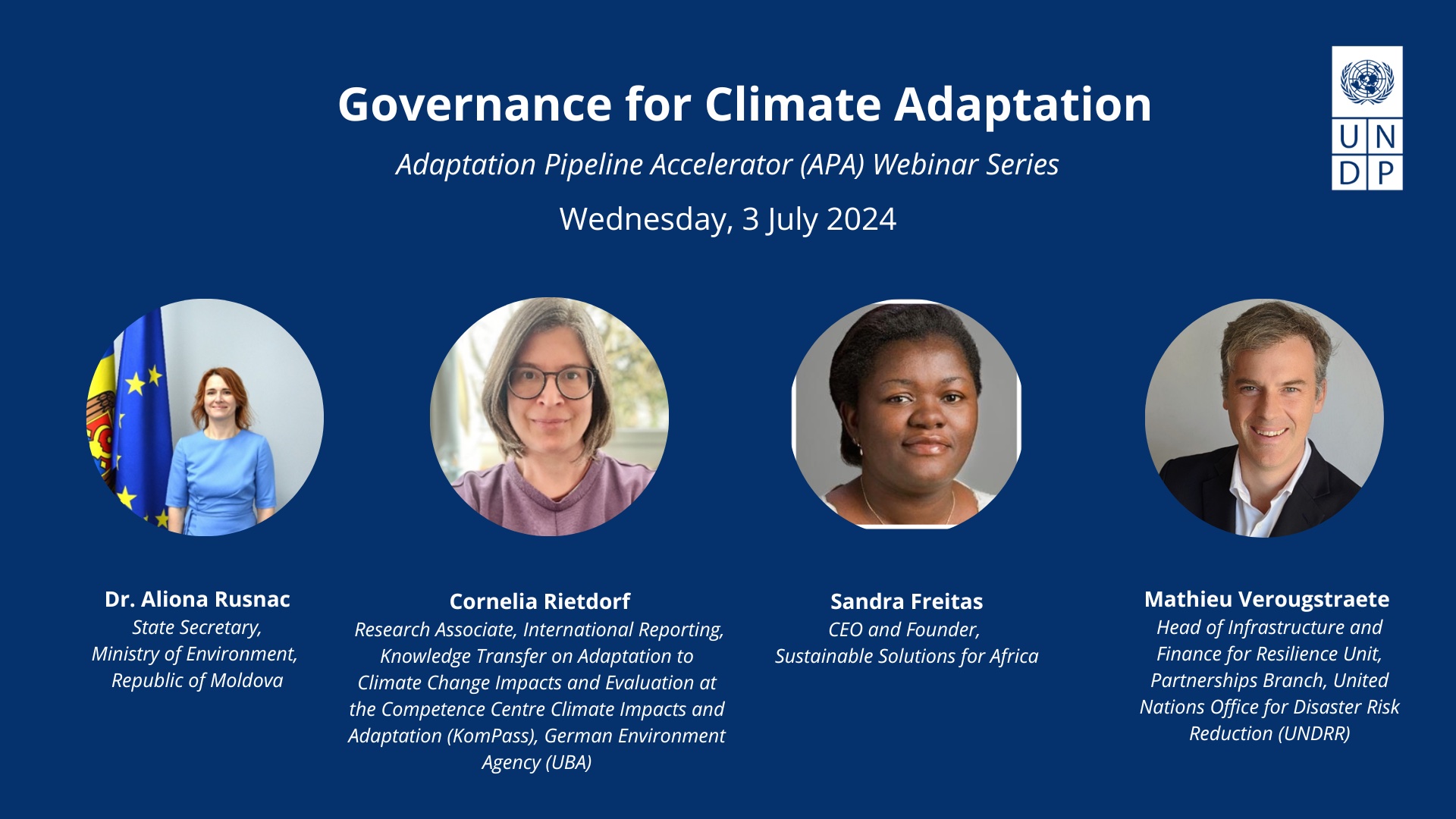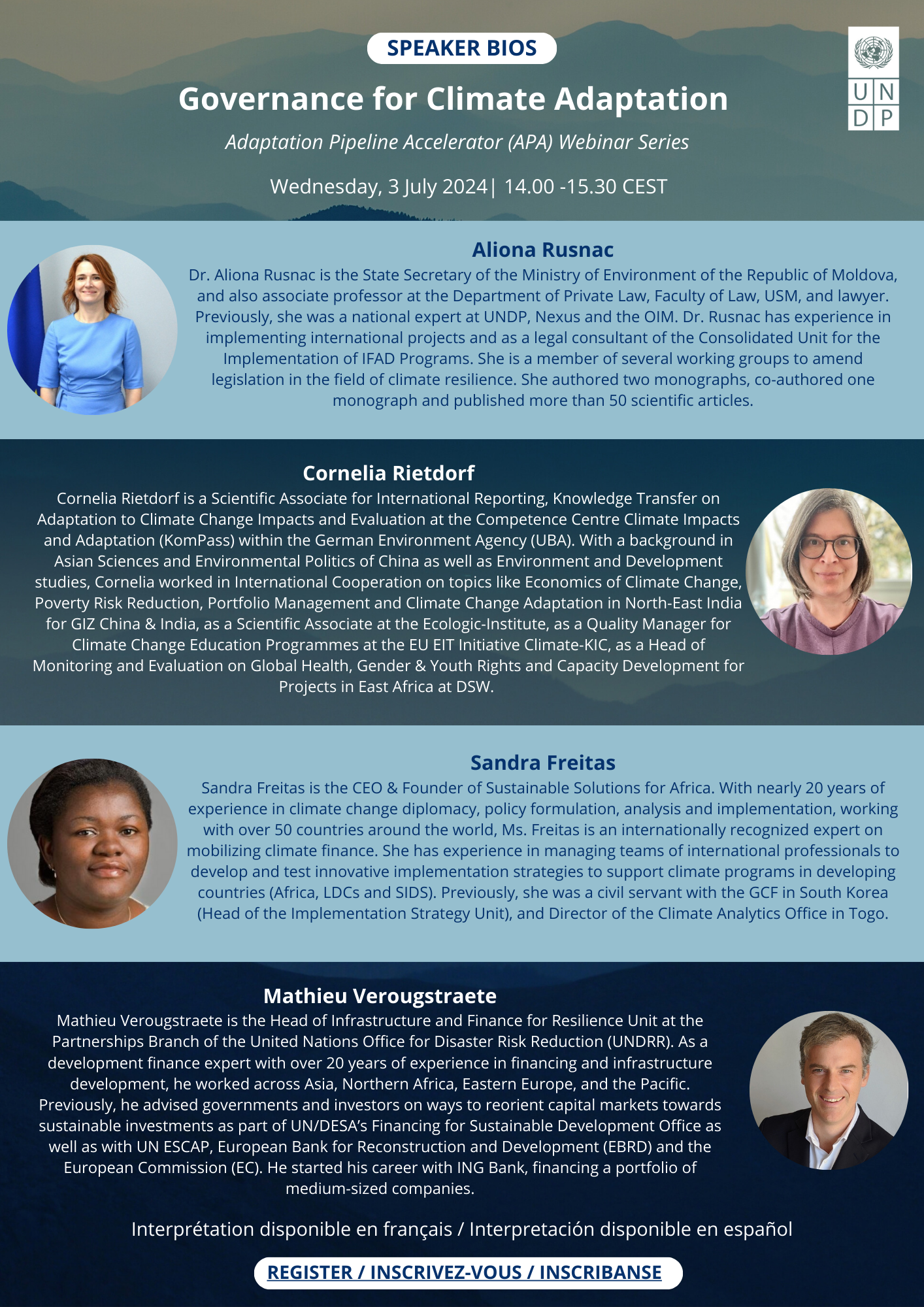
Background
According to the IPCC (2023), growing public and political awareness of climate impacts and risks has resulted in at least 170 countries including adaptation in their climate policies and planning processes. While governance for climate change adaptation, including policies, procedures and institutions, differ across countries, it is widely recognized as being one of the key factors in ensuring implementation of climate policies and enabling climate resilient development (IPCC 2023).
Germany adopted its first ever Climate Adaptation Law in 2023 and a new Climate Adaptation Strategy is expected later this year. In 2023, Moldova adopted a new National Climate Change Adaptation Programme Action Plan to 2030. Both countries have completed multiple cycles of adaptation policy planning and have focused on a strong monitoring and evaluation frameworks, which are relevant to the ongoing discussions related to the Global Goal on Adaptation and beyond.
Governance for adaptation can also include financing mechanisms, and finance in general, is one of the major gaps in adaptation planning and implementation.
As part of its support to the UN Secretary General led Adaptation Pipeline Accelerator (APA) initiative, UNDP and partners have been organizing knowledge exchanges with the aim to inform participants about various tools, frameworks, resources and facilitate exchange of emerging experiences among countries on accelerating adaptation. This edition of the APA webinar included experiences of two different countries’ adaptation policy cycle, including monitoring and evaluation frameworks, and a recently published guide for adaptation investors.
Full recording of the webinar is available here.
Agenda
Introduction and welcome remarks by the moderator Rohini Kohli, Senior Technical Advisor, Adaptation Policy and Planning, UNDP Climate Hub
Adaptation governance: policy planning, monitoring and evaluation
- Document
– Dr. Aliona Rusnac, Secretary of State, Ministry of Environment, Republic of Moldova
– Cornelia Rietdorf, Research Associate, International Reporting, Knowledge Transfer on Adaptation to Climate Change Impacts and Evaluation at the Competence Centre Climate Impacts and Adaptation (KomPass), German Environment Agency (UBA)
Adaptation governance: finance:
- DocumentAccelerating adaptation finance in Africa .pdf (854.77 KB)
- Findings of the State of Adaptation in Africa Report (SOAR) by the Africa Adaptation Initiative (AAI), Sandra Freitas, CEO/Founder, Sustainable Solutions for Africa
- Document
- (based on the Guide for Adaptation and Resilience Finance) - Mathieu Verougstraete, Head of Infrastructure and Finance for Resilience Unit, Partnerships Branch, United Nations Office for Disaster Risk Reduction (UNDRR)
Q&A and Discussion

